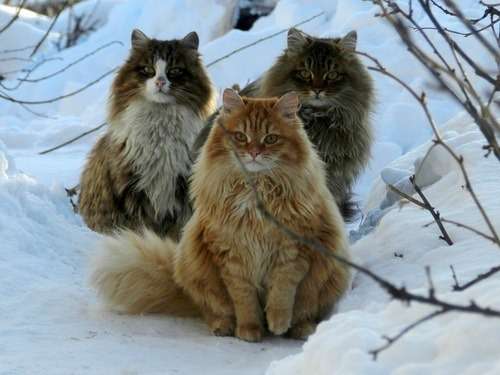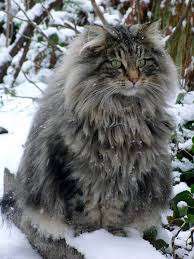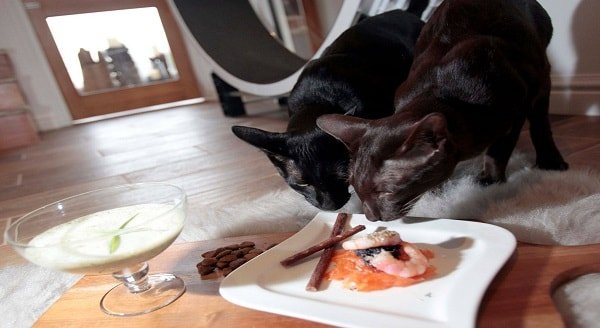The “mystic wildcat of fairy tales” is very rapidly becoming a favorite family pet in Northern Europe.
The Norwegian forest cat, originated somewhere between 1500 and 4,000 years ago, as a result of natural selection.
Though they almost went completely extinct during World War II, these ancient cats are making a huge comeback in Norway, Sweden, Iceland and in France.
Their precise origin is yet up for debate. One particular theory is that the Vikings brought short-haired from the British archipelago which mixed with long-haired cats brought by the crusaders. Yet another claims they are some type of hybrid of Siberian forest cats from Russia and Turkish Angoras.
No matter that way you look at it, these cats have been the subject of Norse folklore for millennia.
Breeders out in Finland describe the cat as the “mystic wildcat of the fairy tales.”
Norse mythology explains that forest cats were the favorites of Freyja, goddess of love, fertility and the hearth, who actually traveled in a chariot drawn by either two white or gray forest cats.
According to legend, the goddess’ presence passing through the countryside caused seeds to sprout and grow. Farmers that left out pans of milk for her divine cats were, in turn, blessed with bountiful harvests.
Forest cats were believed to be so huge that not even the gods could lift them.
These strong, giant cats were almost certainly the cats that traveled on Viking ships, and were kept back in Viking barns, which kept them mouse-and-disease-free.
Impressive hunters and climbers, one Norwegian tale goes on to describe them as “mountain-dwelling cats with an ability to climb sheer rock faces that other cats could not manage.”
However, much like their Viking kin, forest cats have a softer side.
Weighing up to a whopping 16 pounds, their large size is mostly fluff. Up to 75% fur, they are the absolute perfect kitty to cuddle with.
They have an extremely dense double coat, with a down-like layer underneath and a water-resistant wooley layer on top which keeps them warm during the long, cold Nordic winters.
Affectionately called “Wegies,” the cats are unique among cats their size for their quiet calm demeanor.
They are truly the largest domesticated cat in the world, other than Maine Coons, which are thought to be their descendants, which can weigh up to 25 pounds.
“Wegies” are quite friendly, social and independent,” according to BasePaws.com:
“While they highly appreciate the company of their favorite humans, they like to keep things in their own terms. They can be lap cats, but only when, where and with whom they want to cuddle. These kitties love to explore and they make for excellent climbers. If let to roam freely, they will often develop into very effective hunters.”













No Responses